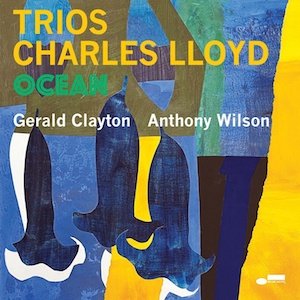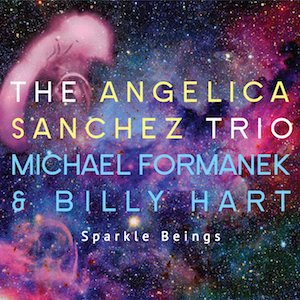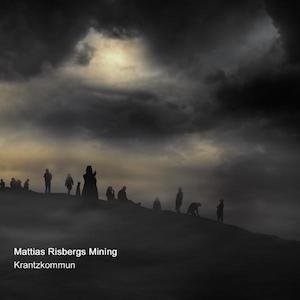Label: ACT Records, 2022
Personnel - Michael Wollny: piano; Tim Lefebvre: bass; Eric Schaefer: drums.
With both discipline and freedom stirring up their music, the trio of pianist Michael Wollny accomplishes a lot in Ghosts, their seventh recording for the ACT label. The album pairs the German pianist with stellar foundation builders such as the American bassist Tim Lefebvre, who rejoins his mates eight years after playing in the debut album Welktentraum, and the sensitive drummer Eric Schaefer.
So tastefully put together, this work thrills with variety in the approach and makes certain moments unforgettably special, with the most spectacular examples being “Ghosts”, an exquisite cover of Japan’s 1981 hit made with prepared piano, cymbal legato and electronics; and a rousing rendition of Schubert’s “Erlkonig” enhanced by industrial, classical and avant-garde influences.
But the trio doles out many other exciting surprises, giving a new life to jazz standards such as the Gershwin-penned “I Loves You, Porgy”, which waltzes as much as it swings in four with jazz and classical touches, and Duke Elligton’s classic “In a Sentimental Mood”. There’s also the Southern gothic rock of Nick Cave’s “Hand of God”, here presented with an adventurous bass cruise at the outset and epic contours as a result of Wollny’s harmonic execution and darting runs; as well as Paul Giovanni’s haunting “Willow’s Song” (from The Wicker Man original soundtrack), which turns like a rarefied, perpetual contemplation with keen piano intervals, beautiful contrasts in tone and color, and a no-sweat vamping at the end. Timber Timbre’s indie folk/rock song “Beat the Drum Slowly”, where the smoothness of some passages dwindles the flow in opposition to the expansive militaristic austerity of others, is also worthy of attentive listening.
Wollny reinforces his astonishing stylistically range with originals. “Hauntology”, is introduced by a vividly articulated piano figure in five, with most of the remaining adorns and coloration coming from the higher register. By comparison, on “Monsters Never Breathe”, he relies on his left hand to produce haunting, low-pitched movements that take place with the impeccable brushwork of Schaefer, whose sound is absolutely delicious.
With interesting tune choices and a penchant for the experimental, Ghosts is unified in a way Wollny’s music hasn’t been so far. It’s a fascinating sonic world that deserves both respect and admiration.
Favorite Tracks:
01 - I Loves You Porgy ► 05 - Ghosts ► 07 - Erlkonig








































